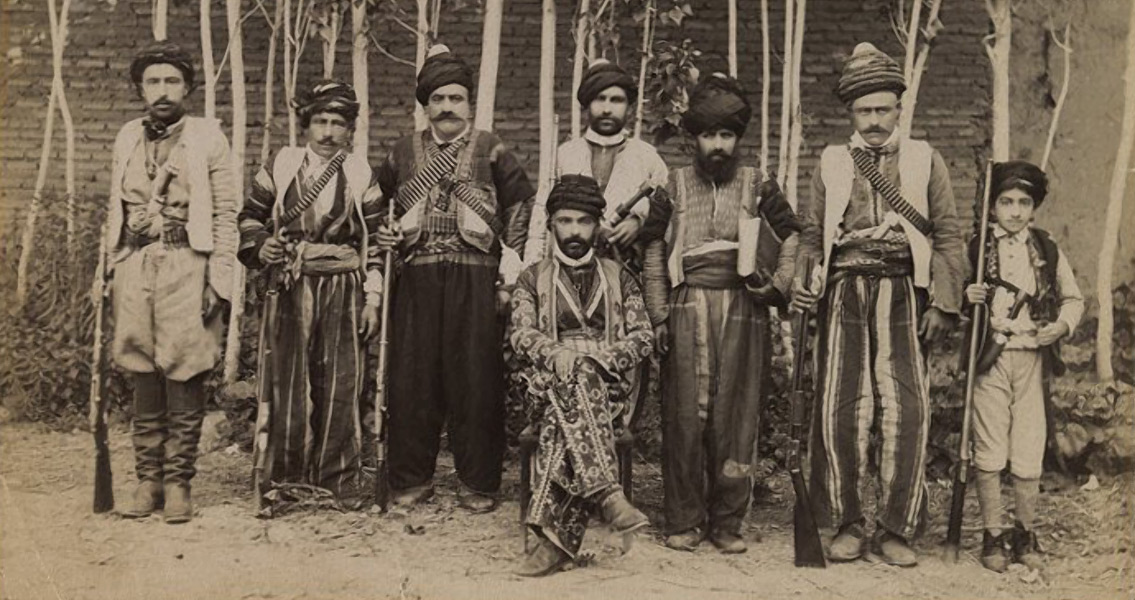<![CDATA[This week a group of Kurdish fighters battling Islamic State militants in Northern Syria successfully captured a key district in Kobane. They have now gained control of 80% of the town, including key locations such as the police headquarters, according to BBC News. The Kurdish fighters have been playing an important role in the battle against IS since September 2014. A look at the fascinating and at times tragic history of the Kurdish people can give some insight into how they have become increasingly important to events in the Middle East. Kurds belong to the Iranian section of the broad family of Indo-European peoples, but details of their exact origins are hard to confirm. Links can be found to the Medes, a tribe from the sixth century BCE who conquered Assyria and founded an empire that included what is now Iran and central Anatolia. The Medes political influence came to an end with the arrival of Alexander the Great in the region. From then until the rise of Islam, there were references to mountain tribes with names similar to Kurd, although it is debated among scholars whether these can be definitively linked to modern Kurds. The tribe's conversion to Islam in the seventh century provides the first explicit references to the name Kurd. Although never establishing a permanent nation state, the Kurds have frequently played a key role in the history of the Middle East. Since the Crusades, they have held a reputation as fierce fighters, often recruited into the armies of other states, tribes and civilisations. This reputation was most clearly embodied in Saladin, a key Muslim military leader during the Crusades, who was of Kurdish decent. Historically the Kurds led nomadic lives in the plains and highlands around south-western Armenia, north-western Iran, northern Iraq, north-east Syria and south-east Turkey. Their society was built around sheep and goat herding. Despite the lack of a permanent state, a strong Kurd cultural identity exists, one fostered through centuries of tradition and shared history. Throughout the nineteenth and early twentieth century the Kurd's traditional nomadic existence came under threat as borders of neighbouring states became more rigidly established in traditional Kurdish mountain territories, putting pressure on the Kurds to integrate into other societies. At the start of the twentieth century Kurdish nationalists became more determined, and began agitating for a state of their own. Since the 1890s Kurdish newspapers and political clubs existed in what is now Turkey, highlighting a growing cultural autonomy. The defeat of the Ottoman Empire in World War One presented a great opportunity for the establishment of Kurdistan, and the Treaty of Sevres of 1920 made provision for the Kurdish state. Three years later however, the borders of Turkey were drawn in the Treaty of Lausanne and Kurdistan was not included. The Kurds were thus left with minority status in the states of the Middle East. In the 1920s and 1930s Kurdish uprisings in eastern Turkey were met with brutal government suppression. Over the following decades attempts were made to outlaw the Kurdish language and prevent Kurds wearing their traditional clothes in the country's major cities. In 1978 Abdullah Ocalan founded the Kurdistan Worker's Party (PKK), an organisation dedicated to the creation of an independent Kurdistan. Throughout the 1980s and 1990s the PKK engaged in acts of guerrilla warfare and terrorism against the Turkish government in the Eastern provinces, until Ocalan was captured in 1999. In 2002 the Turkish government legalised broadcasts in the Kurdish language, as part of the attempt to gain membership to the European Union, but tensions and skirmishes have continued. The conflict with IS has further complicated the situation between Turkey and its Kurd population. 160,000 Kurd refugees have been allowed across the Turkish border, to escape the fighting in Iraq and Syria. However, Turkey remains reluctant to further involve itself in the war with IS, fearing that former PPK fighters will cross the border and launch attacks on Turkey. Iraqi and Syrian Kurds have been pulled into the fighting by IS advances into their territories in the respective countries. In January 2014 several Kurdish political parties in Syria took advantage of the disorder caused by the Syrian Civil War to declare the creation of a Kurdish regional government. The Syrian Kurd's fight against the IS militants can be seen as another part of this campaign for independence, securing their territory from the rapid jihadist advance that has shocked the Middle East. The 30 million Kurds in the Middle East make up the fourth largest ethnic group living in the region. As their contribution to the fighting against IS proves, they still play a vital role in the outcome of events and the path of history in the Middle East. ]]>
History of the Kurds
